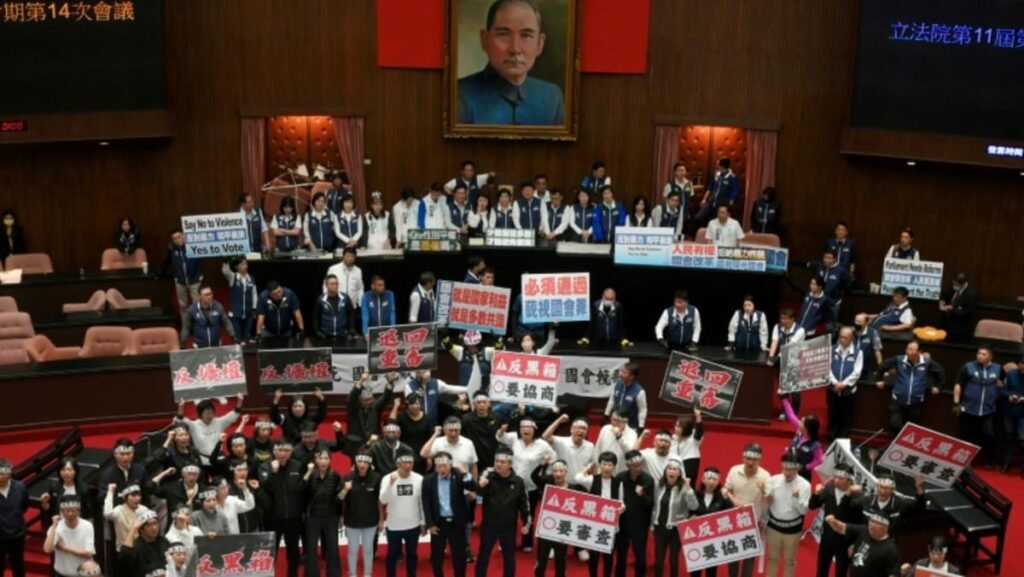Protests erupted outside the Legislative Yuan in Taiwan as thousands gathered to express their opposition to proposed amendments that would allow for streamlined parliamentary proceedings. Participants carried signs denouncing the parliament and voiced concerns that the changes could erode democratic principles in Taiwan. Many protesters, including retiree Cheng Li-lin, expressed frustration that the country’s hard-won democracy could be undermined by the proposed amendments. Drag queen Nymph Wind and student Lin Pei-ying also joined the crowd to show their support for parliamentary reform while condemning the manner in which it was being pursued.
The protest was fueled by a sense of urgency and determination to defend Taiwan’s democratic values, with many attendees calling for the parliament to uphold respectful procedures and democratic ideals. The atmosphere was charged with emotion as citizens voiced their concerns about the potential impact of the proposed amendments on the country’s political system. The presence of diverse voices, including that of a drag queen and a young student, highlighted the breadth of opposition to the changes and the unity of purpose among demonstrators, despite their differing backgrounds and perspectives.
The protest was marked by a desire for accountability and transparency in the parliamentary process, as many attendees expressed frustration with what they saw as a lack of respect for democratic norms and principles. The violence that erupted during the parliamentary session prompted outrage and condemnation from both supporters of the ruling Democratic Progressive Party (DPP) and the opposition Kuomintang (KMT). The injuries sustained by lawmakers from both parties underscored the intensity of the clashes and the deep divisions within Taiwanese society over the proposed amendments.
The presence of well-known figures like RuPaul’s Drag Race winner Nymph Wind lent additional visibility to the protest and underscored the broad-based opposition to the proposed changes. Wind’s decision to join the demonstration highlighted the significance of the issue and its potential impact on Taiwan’s political landscape. Her participation, alongside that of other activists and concerned citizens, added momentum to the protest and underscored the widespread discontent with the direction the parliament was taking.
As tensions continued to escalate outside the Legislative Yuan, protesters remained steadfast in their commitment to defending Taiwan’s democratic values and calling for accountability from the parliament. The outpouring of anger and frustration reflected a deep-seated concern for the future of Taiwan’s political system and a determination to resist any attempts to erode its democratic foundations. The protest served as a powerful reminder of the importance of civic engagement and activism in safeguarding democracy and holding elected representatives accountable to the will of the people.
In the aftermath of the protest, the debate over the proposed amendments continued to roil Taiwanese society, with citizens grappling with the implications of the parliamentary standoff and the need for political reform. The events outside the Legislative Yuan served as a catalyst for a broader conversation about the state of democracy in Taiwan and the role of the parliament in upholding the values enshrined in the country’s constitution. As the dust settled on the protest, many wondered what the future held for Taiwan’s political system and how citizens could work together to ensure that their voices were heard and respected in the halls of power.












